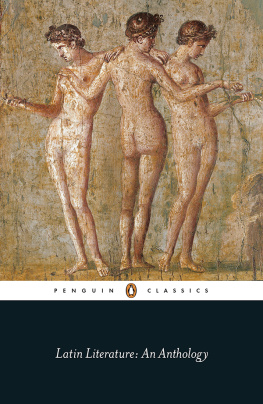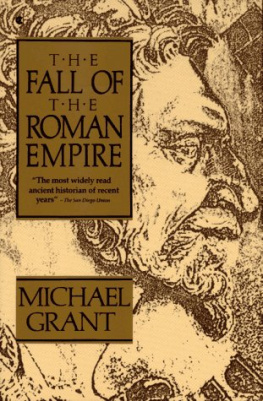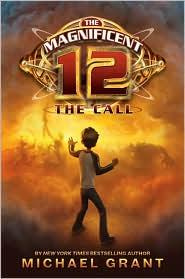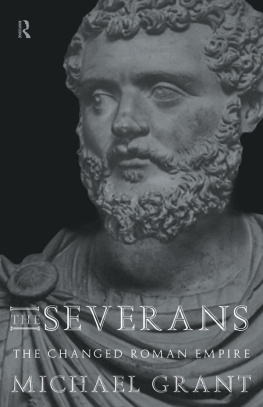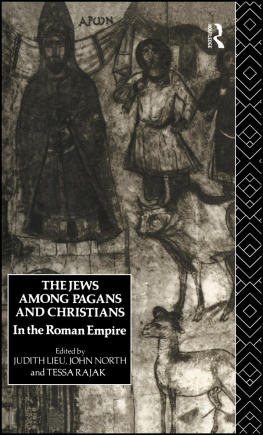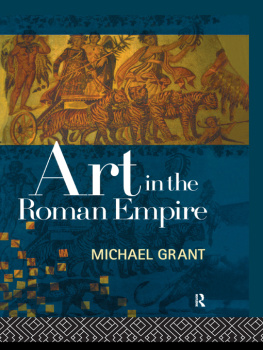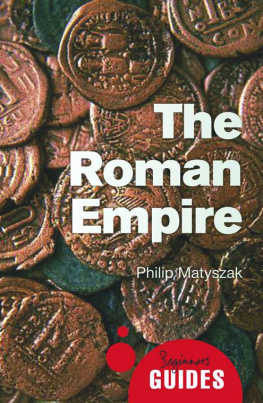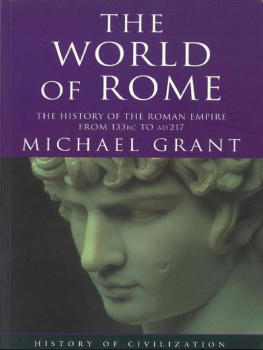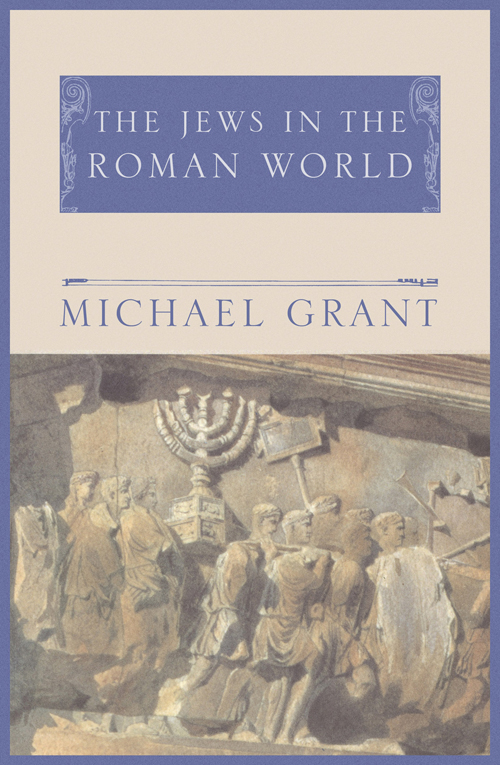A WEIDENFELD & NICOLSON EBOOK
First published in Great Britain in 1973 by Weidenfeld & Nicolson.
First published in ebook in 2011 by Weidenfeld & Nicolson.
Copyright Michael Grant Publications Ltd, 1973
The right of Michael Grant to be identified as the author of this work has been asserted by him in accordance with the copyright, designs and patents act 1988.
All rights reserved. No part of this publication may be reproduced, stored in a retrieval system or transmitted in any form or by any means without the prior permission in writing of the publisher, nor be otherwise circulated in any form of binding or cover other than that in which it is published without a similar condition, including this condition, being imposed on the subsequent purchaser.
A CIP catalogue record for this book is available from the British Library.
ISBN: 978 1 780 22281 3
Orion Books
The Orion Publishing Group Ltd
Orion House
5 Upper St Martins Lane
London WC2H 9EA
An Hachette UK Company
www.orionbooks.co.uk
Michael Grant (19142004) was a highly successful and renowned historian of the ancient world. He held many academic posts including those of Fellow of Trinity College, Cambridge; Professor of Humanity at Edinburgh University; Vice Chancellor of The Queen's University, Belfast and Vice Chancellor of the University of Khartoum. He was a Doctor of Letters at Dublin and a Doctor of Laws at Belfast. He has also been President of the Classical Association of England, the Virgil Society and the Royal Numismatic Society, and was a Medallist of the American Numismatic Society.


To study the Jews in the Roman world is one of the best ways of making close contact with that world, because although the ancient Romans and the Greeks have gone for ever, the Jews are still with us: in them, continuity between ancient and modern life exists for everyone to see. Numerically, taken over the whole earth, they were fewer in those days than they are now perhaps eight million as against fourteen million today. But no less than seven of these eight million were in the Roman empire, where they constituted between six and nine per cent of the population in the eastern provinces, the percentage was perhaps as high as twenty. Comprising, as they did, such a high proportion of the total number of inhabitants, they could scarcely fail to exercise an influence upon events; and given their highly distinctive beliefs and customs, so divergent from the Greco-Roman way of life which surrounded them, it was predictable that their relations with their neighbours would become both dramatic and explosive.
And that, indeed, is what happened. A writer on this great subject, whatever his own inadequacies, has the advantage of one of the most absorbing and exciting themes in the history of the world. For he is called upon to display the workings of the greatest multiracial empire the world has ever known, and to show how its Greek and Roman and particularly Jewish communities all kept up a continual, triangular effort to maintain their own points of view: he also has to describe how, more than once, these endeavours crashed in terrible catastrophe.
We derive our civilization, it has often been said, from Athens, Rome and Jerusalem. While the stark simplicity of this assertion has been somewhat eroded in our own times by the recognition of Byzantiums intermediary role, and by the claims of the Germanic and Celtic north, yet the old saying still contains a great deal of truth. However, it is only rarely that students of history fully pursue its implications and objectively attempt to consider the three cultures side by side with one another. For most of us, apart from specialists, are conditioned to regarding Athens (or, for the purposes of the present study, let us rather say its successor Alexandria) and Rome as secular subjects, but Jerusalem as a different sort of subject altogether, a religious concept and theme which cannot be regarded as history in quite the same way.
This attitude inevitably hampers our endeavours to discover what was going on. For when we turn to the ancient authorities for the information that we require, it becomes clear that they fail to give us the balanced picture for which we might have hoped. Pagan writers are always ignorant of the Jewish world and usually biased against it; and the biblical sources, even when seemingly historical or biographical, prove to be primarily concerned with another matter altogether, the demonstration of the super-natural, supra-historical, validity of their faith. There remains another Jewish historian, Josephus. Nowadays much neglected, he is a writer who deserves and demands urgent attention. But, for reasons of his own which will emerge in the course of this story he, too, does not rank high among historians for objectivity.
So the attempt to describe the interrelationship of Jews, Greeks and Romans presents challenging difficulties and problems, which can only be approached with great diffidence. The late Cecil Roths remark, that the author of any general account of the Jews needs to know not just everything about one thing or something about everything, but everything about everything, scarcely helps to dispel that justified diffidence. Nevertheless the effort, however formidable and numerous the pitfalls which beset it, surely needs to be made. For religion is an immensely significant part of secular history: whether god-given or delusive, its beliefs and cults have guided people more powerfully than any other force. And yet in this field of ancient history, covering all-important centuries for Judaism and paganism alike, we find ourselves hindered in conducting the investigation that is needed. We are hindered, as we have seen, because our information about the vital Athens (Alexandria)RomeJerusalem axis, the necessary basis of any reconstruction of that age, is so very uneven. It is essential, therefore, to try to even it out, presenting each of its elements according to just the same sort of historical criteria as the others, in the hope that the true relations between the three of them will then emerge.
This is all the harder, and yet all the more urgently needed, because of the most significant of all the developments that overtook Judaism in the Roman world. For this was the time when the Jewish religion, in addition to achieving new forms of its own that have proved durable and permanent, gave birth to the Christians: a body of Jews who, unlike the majority of their nation, believed that, in the not so very distant past, the awaited Messiah had already come to live for a time upon the earth. Within a century after the date ascribed to his death, his followers had become completely independent of world Jewry. But until that final rift occurred, they were still linked in various ways with the Jewish originators of their church so that they form a part, and some will say the most important part, of the present story. The final separation between Christians and Jews is coming to be seen by many scholars, both Christian and Jewish, as a greater disaster by far than any subsequent schism within the Christian church itself. Whether it was a disaster or not from the point of view of the spiritual salvation of mankind is not my present concern. My purpose is to show, as far as I can, how this situation, throughout the various dramatic stages of its development, affected the relationship between Jews, Greeks and Romans which is the subject of my book.


